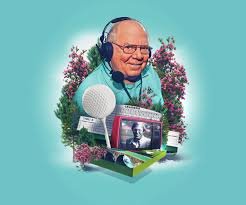On Saving Money and Spreading Manure
As you may know, the mission of this column is to discover ways to save time and money every day. You help me by sending me your great tips, tricks and ideas; I help you by boiling it all down here. That answers what the column is for, but why should you read this column?
Why should anyone be concerned about saving money? Have you ever thought about that? Who cares?
While you’re pondering, I thought I’d share with you the ultimate reason that saving money is so important to me, personally. But first, let’s define some terms.
Saving money is defined in two ways, which many people use interchangeably:
— Saving is spending less than I would have because an item is on sale or a particularly good deal is offered. It’s like saying, “Wow, I just saved on these really cute boots that originally cost $225 but were on sale for just $188!”
— Saving also refers to accumulating money to be stored in a safe place and not be touched, as in, “I save $100 a month by having it automatically transferred to my savings account.”
Technically, unless you stash away that $37 you saved on the boots and don’t touch that money, you’re not really saving anything — you’re just spending less than you would have if those boots had not been on sale.
So, why do I save money? I see it as a tiered proposition. My goal is to spend less than I earn so that I have money to save for these purposes:
— To fund my own emergencies.
— To prepare for the future when I will no longer have an active income.
— To give as much as I can to those in need.
There it is. Those are the reasons why I look for every possible way to save as much money as I can. I guess you could say that I look for ways to save now so I really can save in the future!
Author Bruce Larson once said, “Money is another pair of hands to heal and feed and bless the desperate families of the earth. In other words, money is my other self. Money can go where I do not have time to go, where I do not have a passport to go. My money can go in my place and heal and bless and feed and help. A man’s money is an extension of himself.” That’s true of your money only if you’re willing to part with it.
Or as Thornton Wilder put it, “Money is like manure. If you let it pile up, it just smells. But if you spread it around, you can encourage things to grow.”
I have no idea how many of my readers have taken to making their own laundry detergent (which, by the way, is better and cheaper than any brand name I know of). It must be tens of thousands given the feedback I’ve received. Those who do this are saving at the very least about 20 cents per load of laundry. It sounds like peanuts, doesn’t it? Like two thin dimes.
Do a rough calculation to see how many loads of laundry go through your washer every week. I do at least five. 20 cents x 5 loads = $1.00 saved weekly. That means I’ll save $52 in a year. That’s respectable, but doesn’t make any of us gasp.
Now, let’s say that 10,000 readers make their own laundry detergent and do at least five loads a week. They’ll each save $52 each year, same as me. But collectively, they’ll save $520,000 ($52 x 10,000 = $520,000). I knew the answer, but it still makes me gasp.
My point? Never underestimate the power of saving money, whether you spend less or put money aside for special circumstances or to do good in the world.



